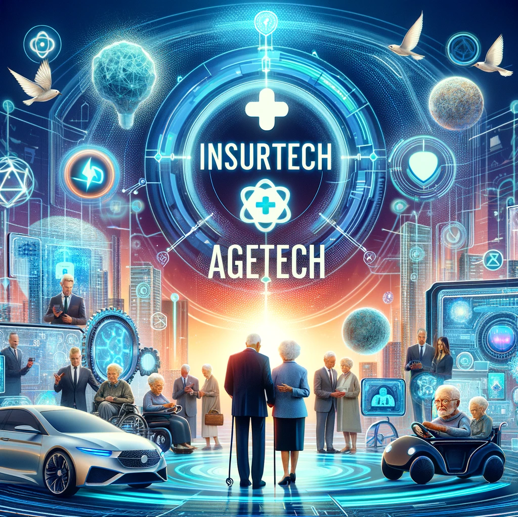The Potential Transformation of Long-Term Care Insurance: Embracing Innovation
Long-Term Care (LTC) insurance, often considered challenging for insurance companies due to its uncertainties and risks, could find renewed viability through innovative approaches such as Intelligent Caregiver Alert Technology and Personalized Frailty Management Programs. These advancements have the potential to not only mitigate the concerns associated with LTC insurance but also offer new opportunities for insurers to provide valuable services to policyholders.
Intelligent Caregiver Alert Technology:
Integrating intelligent caregiver alert technology can significantly enhance the effectiveness of LTC insurance, making it more appealing for insurance companies:
Early Intervention: Smart sensors and monitoring systems can detect changes in a policyholder’s daily routines, vital signs, or activities. This data can help identify potential health issues or emergencies at an early stage, allowing for timely interventions that could prevent more severe conditions and reduce the overall cost of care.

Reduced Risk and Costs: By offering policyholders access to such technology, insurance companies can actively manage and minimize potential risks associated with frailty. Fewer emergency hospitalizations and the ability to address issues before they escalate can lead to cost savings, benefiting both policyholders and insurers.
Data-Driven Insights: The data collected by these technologies can provide insurers with valuable insights into the health and well-being of their policyholders. This information can inform more accurate risk assessments, allowing insurance companies to tailor coverage and pricing based on individual health profiles.
Personalized Frailty Management Programs:
Incorporating personalized frailty management programs can create a win-win scenario for insurers and policyholders:
Proactive Health Management: These programs can include personalized exercise regimens, nutrition plans, and cognitive training that cater to the specific needs of each individual. By promoting healthier lifestyles and better self-care practices, insurers can reduce the likelihood of policyholders needing extensive long-term care services.
Incentives for Policyholders: Insurance companies can offer incentives, such as premium discounts or coverage enhancements, to policyholders who actively engage in and benefit from these programs. This not only promotes healthier living but also aligns the interests of policyholders and insurers.
Enhanced Policyholder Relationships: The integration of personalized frailty management programs can foster stronger relationships between insurance companies and their policyholders. By actively contributing to policyholders’ well-being, insurers can differentiate themselves and build trust in an industry often associated with uncertainty.
In conclusion, by embracing Intelligent Caregiver Alert Technology, such as the one provided by Grand App AI Grand-Sense Platform, and Personalized Frailty Management Programs, insurance companies can address the challenges of Long-Term Care insurance while simultaneously offering innovative, value-added services. These approaches enable insurers to shift from being purely financial risk mitigators to active partners in policyholders’ health and well-being. Through these innovations, the landscape of LTC insurance stands poised for transformation, potentially redefining its relevance and appeal for both insurance companies and those seeking comprehensive care coverage.







